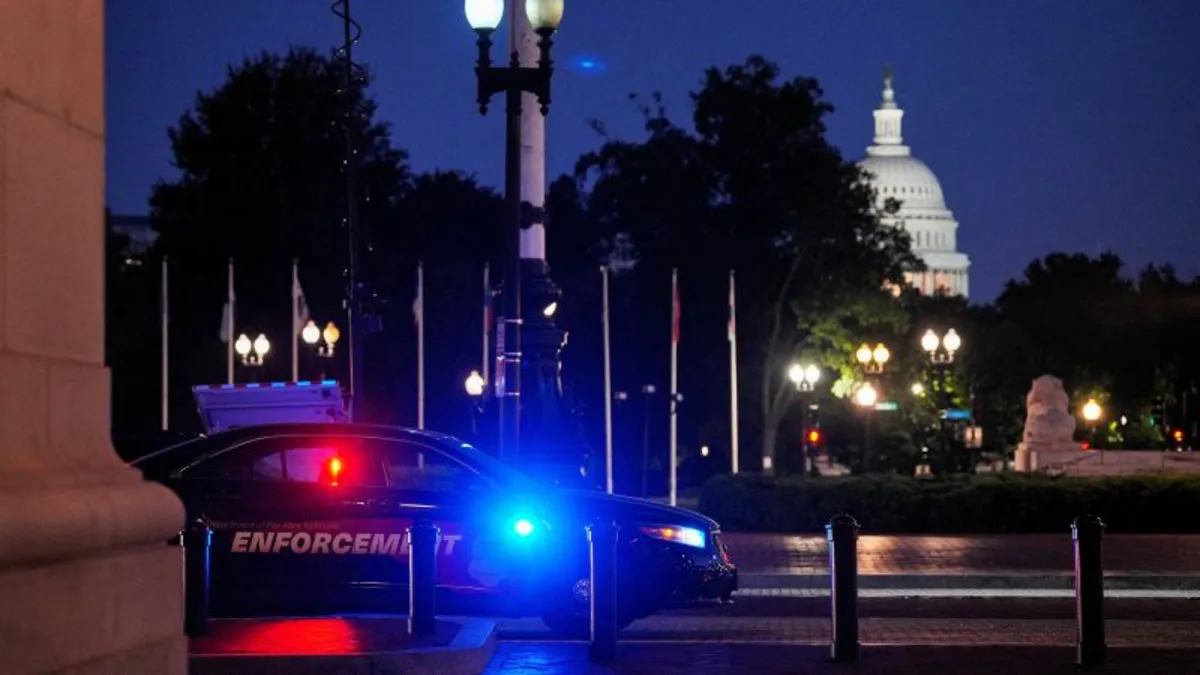
On Monday, President Donald Trump announced he is placing the Washington, DC police department “under direct federal control” and deploying National Guard troops to the nation’s capital. This decision was made in response to a public safety emergency following the assault of a former government worker. The president's move utilizes powers granted under the Home Rule Act of 1973, which allows for a balance between local self-governance and federal oversight in the capital.
The Home Rule Act of 1973 grants the federal government emergency powers, enabling the president to take control of the city’s police department for up to 48 hours if “special conditions of an emergency nature exist.” This unprecedented move marks the first time a president has assumed control of the police force under this act. To extend this takeover beyond 48 hours, Trump must notify congressional leaders overseeing DC affairs. Any control lasting more than 30 days would require congressional approval, a challenging prospect given the current political climate.
Trump's announcement follows the assault of a 19-year-old former employee of the Department of Government Efficiency during an attempted carjacking on August 3. While the president has repeatedly voiced concerns over what he describes as a surge in violent crime, it is important to note that overall crime statistics for 2023 indicate a decrease compared to the previous year.
According to sources, Washington Mayor Muriel Bowser and leaders from the Washington Metropolitan Police Department were not informed about Trump’s intentions prior to his announcement. Bowser described the move as “unsettling and unprecedented,” suggesting that Trump’s perspective of DC has been influenced by his experiences during the COVID-19 pandemic when crime rates were notably high. Conversely, the DC Police Union chairman, Greggory Pemberton, expressed support for the federal intervention, acknowledging the need for action.
In addition to taking control of the police department, Trump activated 800 soldiers from the DC National Guard, with around 200 assigned to support law enforcement. According to the Defense Department, these troops will undertake administrative and logistical roles while providing a physical presence to assist local police. This move also highlights Trump’s broader jurisdiction over city affairs, as various federal law enforcement agencies, including the FBI, have their headquarters in the capital.
Despite Trump’s assertion that crime is “out of control,” data reveals a different narrative. Violent crime in Washington, DC, has been on the decline since its peak in 2023, showcasing two consecutive years of improvement. The city reported 274 homicides in 2023, the highest figure since 1997. However, there was a significant 32% decrease in 2024, with only 187 homicides recorded, and the numbers have continued to drop into 2025, with 99 incidents reported as of Sunday.
Additionally, carjackings, which surged to 959 in 2023, have also seen a notable decline. The number of reported carjackings fell to approximately 500 in 2024 and has decreased further in 2025, with just 188 incidents recorded as of the latest statistics. July 2025 marked the lowest monthly total of carjackings since May 2020.
President Trump's decision to place Washington, DC's police department under federal control raises significant questions about the balance of power between local governance and federal authority. As the situation develops, local leaders and residents alike will be closely monitoring the implications of this unprecedented action.